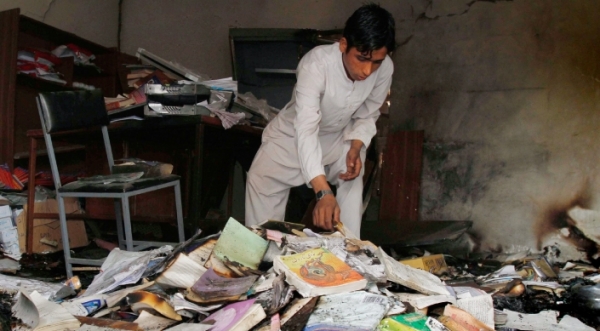At its last meeting, the Working Group on Children and Armed Conflict of the United Nations Security Council examined the fourth report of the Secretary General on children and armed conflict in Afghanistan covering the period January 2015 to December 2018. The United Nations Permanent Representative to Afghanistan also addressed the meeting.
Based on United Nations Security Council Resolution 1612 (2005), the Working Group is charged with reviewing reports on the violation of child rights through armed conflict. The Working Group is also mandated to review progress made in the development and implementation of action plans, to recommend measures to promote the protection of child rights to the United Nations Security Council; and to address other United Nations bodies.
The Working Group expressed concern on the situation of children in Afghanistan, particularly in regard to the significant increase of children being maimed, killed or recruited or used to take part in the hostilities. Stressing the importance of the United Nations Assistance Mission in Afghanistan’s (UNAMA) reporting on violations and abuses of children, the Working Group encouraged to take account of all violations through systematic, impartial and independent investigations.
The Working Group strongly condemned the increasing number of children that were killed or maimed by military operations, improvised explosive devices, explosive remnants of war, aerial operations by the Afghan government and suicide attacks. It urges the parties to comply with international humanitarian law, in particular the principles of proportionality and distinction and the obligation to take precautions to avoid or minimize harm to civilians and civilian objects. It calls the Taliban and the Islamic State of the Khorasan Province (ISKP) to cease exercising violence. The Working Group is also deeply concerned about the recruitment and use of children by armed groups -mainly by the Taliban- urging all stakeholder to unconditionally release, all minors and to end the further recruitment of children under 18 years of age, in accordance with the Optional Protocol to the Convention of the Rights of the Child on the involvement of children in armed conflict. The Working Group further condemns the lack of programmes and services for the reintegration of children formerly associated with parties to the conflict or released from detention facilities as these programmes and services are core for providing a future and preventing their re-recruitment.
Children in Afghanistan are victims of rape and other forms of sexual violence, including cases of violence involving bacha bazi. The Working Group highlights that such crimes are underreported due to the lack of appropriate responses and services for survivor and recommends that the government prosecute those involved in such crimes and urges the parties to the conflict to take specific measures to end bacha bazi.
The attacks on schools and hospitals, which are mainly attributed to the Taliban, were also discussed. Indiscriminate attacks and threats against schools, educational personnel, healthcare facilities and workers are prohibited under the applicable international law and the Safe School Declaration the Afghan government signed in 2015.
The Working Group welcomed the progress made by the government of Afghanistan to prevent the recruitment and use of children in armed conflicts as part of the implementation of the Road Map Towards Compliance, the Action Plan, and the 2015 law which penalizes the recruitment of children. Nevertheless it underlined that the implementation of the revised Penal Code was inadequate. The Working Group also urged the government to intensify its efforts to develop a national plan on children arrested on national security-related charges or those formerly associated with parties to the conflict. Moreover, as Afghanistan ratified, in August 2017, the Protocol on Explosive Remnants of War (Protocol V) to the Convention on Certain Conventional Weapons, a plan to conduct awareness-raising programmes on the dangers of explosive remnants of war would be needed. With regard to sexual abuses of children, the Working Group urged the government authorities to develop response mechanisms to support abuse victims.
Concluding, the Working Group recommended the United Nations Security Council to urge the government of Afghanistan to intensify its efforts to prevent the recruitment and use of children by training security forces, to implement a screening mechanism of the Afghan Local Police and to proactively monitor check points. It also recommended calling upon the government to include the protection, well-being and empowerment of children affected by armed conflict in post-conflict recovery and reconstruction programmes.
To learn more, please read:
https://www.undocs.org/S/AC.51/2020/2
https://www.undocs.org/S/RES/1612%282005%29
https://www.un.org/press/en/2020/sc14223.doc.htm
Author: Silvia Luminati




